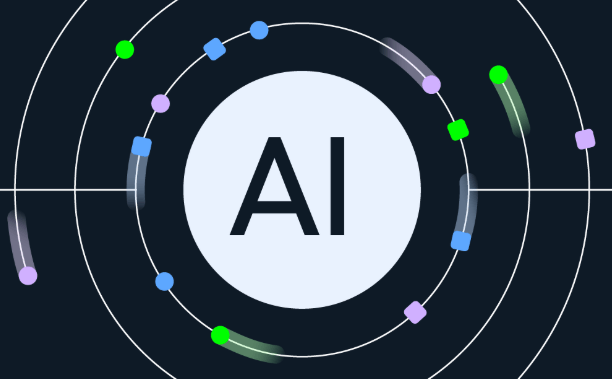
Next-Generation AI Testing Tools: Enterprise Implementation Guide
Over the years, software engineers have relied heavily on manual testing methods, which remain crucial to the testing phase. However, it’s important to understand that test automation is equally essential in other circumstances. In this case, test automation methods are helpful. In recent years, AI testing tools have emerged as a valuable addition to software testing.
AI tools improve workflows for developers, startup owners, and QA specialists. The characteristics and explanations of artificial intelligence testing tools are listed in this blog.
AI for Software Testing: What Is It?
AI testing is a subset of software testing in which automated test scripts are created and run using artificial intelligence. AI can now automatically create test data, validate test data, run test procedures, and evaluate findings thanks to this technology.
AI-powered automation makes it possible to create test scripts more quickly, with less manual labor and with greater efficiency.
AI Revolutionizing Automated Testing
AI is broadening the scope of automation testing, not merely improving current procedures. Here’s how:
- Inclusive Participation: AI makes it possible for team members who lack technical know-how to create and extend tests, increasing accessibility to the testing procedure.
- Simplified Test Lifecycle: AI speeds up the entire test automation lifecycle, from development to implementation and upkeep, guaranteeing a quicker time to market with real-time feedback.
- AI streamlines the Shift-Left methodology, allowing testers to write tests at an earlier stage of the development cycle.
- Operational Efficiency: AI is a major force in changing the testing landscape since it increases enterprise-level productivity and efficiency.
- Taking Over Routine Tasks: AI removes repetitive tasks from businesses by automating data collection, analysis, and decision-making.
- Intelligent Automation: AI-powered intelligent automation detects mistakes and bad coding practices, enabling DevOps teams to attain operational excellence
- Autonomous test creation: AI enhances business intelligence by processing large amounts of data and producing actionable insights
- Enterprise implementation: AI’s scalability guarantees that its advantages spread throughout the organization, resulting in extensive operational improvements; and continuous evolution
Steps to Implement AI Testing Tools in Enterprises
Identify Goals and Set Requirements
Before adopting a testing tool, it’s crucial for enterprises to clearly define their objectives:
- What are the main priorities for AI testing (e.g., accuracy, compliance, fairness)?
- Which specific business processes or systems need to be tested?
- What ethical or regulatory standards must be met?
Collaborate with stakeholders to develop a comprehensive list of requirements and establish clear success criteria.
Assess and Choose Suitable Tools
When selecting AI testing tools, evaluate them based on the following considerations:
- Scalability: Can the tool manage large datasets and complex AI models effectively?
- Integration: How well does it integrate with your existing workflows and systems?
- Customization: Can it be adapted to meet the organization’s specific needs?
- Support: Does the vendor provide sufficient documentation, training, and technical assistance?
Start with a Pilot Project
Launch a pilot project to test selected tools on a smaller scale. During this phase:
- Uncover potential bottlenecks or issues.
- Fine-tune workflows and improve processes.
- Collect valuable feedback from involved stakeholders.
Expand Implementation
After a successful pilot phase, scale the testing process across the organization.
Continuously Monitor and Improve
AI systems and testing tools are continually evolving. To handle new issues and take advantage of new opportunities, evaluate system performance on a regular basis, collect useful information, and improve the testing framework.
Benefits of AI Testing Tools
AI testing tools, powered by machine learning and generative AI, are transforming the software testing process.
- Improved Test Automation and Efficiency
AI testing tools automate the creation of test cases and the maintenance of test scripts, streamlining processes and increasing productivity. - Self-Healing for Script Maintenance
A standout feature of AI testing tools is their self-healing capability, which ensures scripts remain up-to-date. On a cloud-based e-commerce platform, these tools adapt to frequent UI changes automatically, minimizing manual script updates and maintaining the reliability of automated testing as the application evolves. - Predictive Analysis for Proactive Issue Detection
AI testing tools excel at predictive analysis, identifying potential problems before they occur. For example, in a cloud-based project management application, AI can evaluate current data to pinpoint areas at risk of failure. This allows QA teams to address high-risk components, improving stability and performance.
- Visual Testing for UI Validation
AI-driven visual testing tools ensure UI consistency across devices and screen sizes. For a cloud-based CMS, these tools compare visual elements and layouts to maintain a seamless user experience across platforms. Detailed analytics help teams quickly resolve UI inconsistencies, enhancing overall interface quality.
Popular AI testing tools
Here are some of the AI testing tools:
KaneAI
KaneAI, developed by LambdaTest, is an AI-driven testing assistant designed to streamline software testing for high-performance quality engineering teams. By utilizing natural language inputs, it simplifies the creation, management, and execution of tests, making the process more accessible to team members beyond engineers and developers.
Key features include:
- Intelligent Test Creation: Simplifies test generation and updates using natural language, eliminating the need for complex coding.
- Multi-Language Code Export: Allows tests to be exported to major programming languages and frameworks for versatility across environments.
- Automated Test Planning: Generates and automates test steps aligned with project objectives for more efficient workflows.
- Show-Me Mode: Converts user actions into natural language instructions to aid in building robust test cases.
- Advanced Testing Capabilities: Supports complex conditions and assertions expressed in natural language for streamlined testing.
- Seamless Integrations: Works with popular tools like Jira, Slack, GitHub Actions, and Microsoft Teams to enhance productivity.
Test.ai
Test.ai offers an innovative approach to automation with its AI-powered testing system, designed to provide flexible and efficient solutions for teams working on AI-driven applications. It specializes in functional, UI, and mobile app testing, adapting to the application’s behavior for more effective outcomes.
Functionize
Functionize is an AI-powered automation platform specializing in intelligent testing for mobile and web applications. Its machine learning algorithms create test cases based on application activity, dynamically adapting to UI changes.
What sets Functionize apart is its contextual understanding of applications. Instead of relying on prewritten scripts, it analyzes user behavior to generate tests reflecting real-world usage. This makes it an excellent tool for testing AI-driven applications involving complex user interactions, such as personalization engines.
Other standout features:
- Smart Maintenance: Automatically updates test cases when application interfaces evolve, reducing manual effort.
- Cloud-Based Architecture: Enables cross-platform and cross-browser testing without the need for complex setup.
- Efficiency: Ensures consistent user experiences across diverse platforms.
AI Test Bot
AI Test Bot is an advanced testing tool designed to automate functional tests for web and mobile applications. It leverages artificial intelligence to create and execute tests based on application behavior.
Key benefits:
- Adaptive Learning: Uses machine learning to analyze application activities and generate test cases, making it ideal for testing machine learning models, image recognition systems, and NLP applications.
- UI Adaptability: Automatically adjusts to interface changes, reducing the need for manual script updates.
ACCELQ
ACCELQ is a cloud-based AI-driven test automation and management platform offering a codeless automation solution tailored for enterprise applications. It supports automation for Web, Mobile, API, and Desktop environments, enabling sustainable and reliable test execution powered by AI.
Key Features:
- Smart Analytics Engine: Enhances test reliability by adapting intelligently to unexpected application changes, using AI for robust element identification.
- AI-Driven Mobile Object Handling: Eliminates test flakiness in mobile automation.
- Automated Reconciliation: Ensures seamless updates and adjustments when application interfaces evolve.
- Smart View Analyzer: Manages test assets effectively across multiple application versions.
- Auto-Generated Test Cases: Provides accurate coverage with minimal manual effort.
- Q-Runner Execution: Delivers smooth and rapid test execution.
- Integrated Test Management: Unifies various testing types and integrates with Jira and Jenkins for continuous delivery.
- Actionable Insights: Offers detailed reports with a comprehensive functional overview.
- Natural Language Editor: Enables manual testers to create automation logic in plain English, reducing the learning curve.
- Scalability and Security: Ensures enterprise-grade performance for diverse organizational needs.
Read also: The Data Science Lifecycle: From Data Collection to Decision-Making
Tricentis Testim
Tricentis Testim is an AI-enhanced testing tool for web and mobile applications, designed to expedite test creation, reduce maintenance, and speed up product delivery. It simplifies the process of authoring stable, AI-powered tests, making it ideal for overcoming complex testing challenges efficiently.
Key Features:
- Monaco Editor: Shares code across tests for improved efficiency.
- AI-Powered Smart Locators: Identifies web elements and auto-updates tests to prevent failures caused by layout changes.
- Diagnostics Tools: Highlights failed test cases using screenshots and network logs for quick debugging.
- TestOps Management: Streamlines test changes, organizes team efforts, and focuses on core testing activities.
Katalon
Katalon is a cutting-edge testing platform that enhances digital quality assurance. Its AI-driven feature, Truetest, eliminates regression test maintenance and uncovers blind spots in test coverage, offering seamless integration with the broader Katalon ecosystem.
Key Features:
- User-Centric Insights: Tracks user behaviors for precise testing.
- Instant Regression Testing: Covers various flows and edge cases automatically.
- Zero Maintenance: Updates test cases in real-time as applications evolve.
- Comprehensive Test Coverage: Aligns testing with actual user actions for reliable results.
TestComplete
TestComplete is an AI-powered tool offering a robust and scalable test automation solution. It supports over 500 controls and integrates seamlessly into the full testing lifecycle.
Key Features:
- AI Visual Recognition: Simplifies test creation and maintenance by detecting dynamic elements accurately.
- Advanced Visual Testing: Identifies web application changes beyond functional tests.
- CI Integration: Embeds automated testing into continuous integration workflows, boosting efficiency.
- Automated Reporting: Delivers real-time updates on progress and testing status through a unified interface.
Conclusion
In the digital age, artificial intelligence is growing in significance, particularly in software testing. When selecting Artificial Intelligence (AI) automated testing solutions to test with AI, take into account the aforementioned possibilities. By automating the processes, these technologies can lower error rates. They can expedite testing in ways that more conventional instruments might not be able to.




